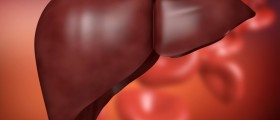I have moderately high AST,ALT and Alkaline Phosphate. The results of a HIDA scan indicated I have an ejection fraction of 90% I was led to believe that this might not be a gallbladder issue. I have a follow-up appointment with Doctor in a week. i am curious as to what else might be causing the high liver enzymes and what additional tests I should talk to the Doctor about so I can put this issue behind me.
Loading...
Hello.
Elevated liver enzymes, including AST (aspartate aminotransferase), ALT (alanine aminotransferase), and alkaline phosphatase, can indicate a variety of conditions affecting the liver or related structures. A HIDA scan with an ejection fraction of 90% suggests that your gallbladder is functioning effectively, which can indeed lead to looking at other potential causes for the elevated enzymes. Here are some possibilities and additional tests you might discuss with your doctor:
-
Non-Alcoholic Fatty Liver Disease (NAFLD): This is a common cause of elevated liver enzymes. It's often associated with obesity, diabetes, and hyperlipidemia. Tests may include an ultrasound or a liver biopsy.
-
Alcoholic Liver Disease: If alcohol use is significant, this could be a cause. Abstinence and lifestyle changes are key, and further imaging or a liver biopsy might be needed for diagnosis.
-
Hepatitis: This includes viral hepatitis such as hepatitis B and C. Blood tests can screen for these viruses.
-
Autoimmune Hepatitis: This is when the body's immune system attacks liver cells. Blood tests for specific antibodies can be helpful in diagnosing this condition.
-
Medication-Induced Liver Injury: Some medications can cause elevated liver enzymes. Reviewing your current medications with your doctor is important.
-
Hemochromatosis: This condition causes iron overload in the body and can affect the liver. Blood tests for iron levels and genetic testing can be used for diagnosis.
-
Wilson’s Disease: This is a rare inherited disorder that causes copper to accumulate in the liver, brain, and other vital organs. Blood and urine tests to measure copper levels can be conducted.
-
Biliary Tract Diseases: Conditions like primary biliary cirrhosis or primary sclerosing cholangitis affect the bile ducts and can elevate liver enzymes, particularly alkaline phosphatase. MRCP (Magnetic Resonance Cholangiopancreatography) or ERCP (Endoscopic Retrograde Cholangiopancreatography) might be considered.
-
Liver Fibrosis or Cirrhosis: These are stages of liver scarring. A liver biopsy or non-invasive imaging like a FibroScan can assess the extent of liver damage.
-
Metabolic Disorders: Conditions like Gilbert's syndrome or thyroid disorders can affect liver enzyme levels.
In your follow-up appointment, it's important to discuss these possibilities with your doctor. They may suggest additional blood tests, imaging studies, or potentially a liver biopsy, depending on your individual case. Also, discuss any medications (including over-the-counter and herbal supplements), alcohol consumption, and lifestyle factors that could affect your liver.
Loading...
















